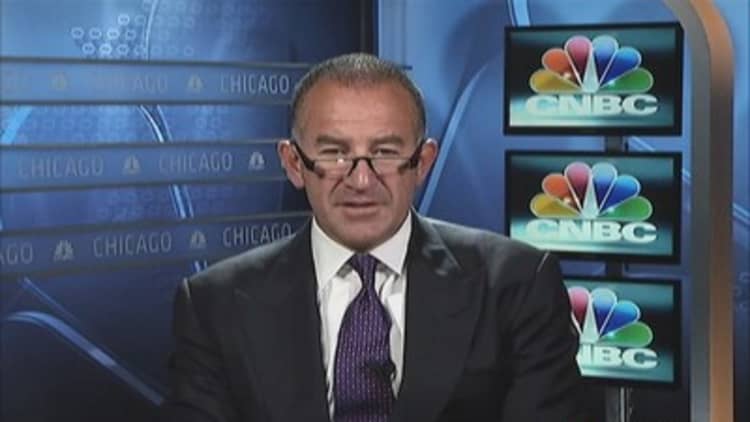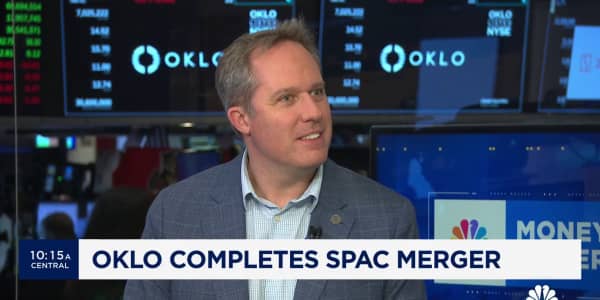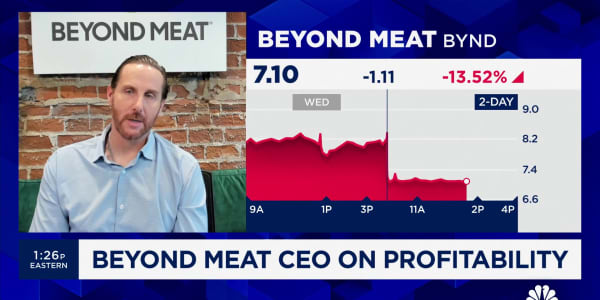Contrary to what you might think, traditional wealth managers and online investment advisors—known colloquially as "robo-advisors"—don't hate each other.
In fact, the sentiment between the two models borders on admiration.
A recent report from MyPrivateBanking Research suggested that traditional wealth management firms are late in realizing the threats posed by robo-advisors.
According to the report, assets under management for all registered investment advisors is said to be about $5 trillion. Robo-advisors presently hold only $14 billion of those assets, but their numbers are growing because of lower account thresholds and popularity with tech-savvy young professionals in the asset accumulation phase of their career.

The term "robo-advisor" is somewhat of a catch-all to describe online firms that manage money based on algorithmic models. However, those models are nothing new to the wealth management industry.
Read MoreRobo-advisor wave poses no threat: Wealth managers
What sets robo-advisor firms apart is their low fee schedule because of lower overhead costs and their focus on investments. Traditional wealth management firms tend to charge 1 percent of assets under management to manage investments as well as advise on estate planning issues. Robo-advisors fees are typically a third of that.
The term itself is under scrutiny in the industry.
"Honestly, it's a pretty silly term," said Adam Nash, the CEO of robo-advisor firm Wealthfront. "It is being popularized largely by the traditional advisory community to stigmatize new, potentially threatening, entrants into the space who utilize innovative technology. One hundred percent of all Wealthfront employees are human."
Meanwhile, Jon Stein, the CEO of Betterment, said that "robo-advisor" sells his firm's service offering short, but he ultimately embraces the term, saying that it is a sign that Betterment and firms like his have "popularized and defined a space."
In fact, you could say that robo-advisors take an outright academic approach to investing.
Read MoreCan robo-advisors gain investor assets?
Wealthfront boasts Burton Malkiel, who wrote the index investing bible "A Random Walk Down Wall Street" as its chief investment officer. Meanwhile, Betterment employs an impressive number of behavioral scientists.
From the perspective of firms in more tech-inclined areas, the feeling from traditional advisors toward their robo rivals is not at all hostile.
"We see robo-advisors as a great extension to the financial services industry," said Cammie Doder, a principal of Aspiriant in San Francisco. "What we are calling 'robo-advisors' today are a great solution for individuals who do not need the investment sophistication, high-touch and in-depth planning of comprehensive wealth management firms like Aspiriant. We like seeing solutions that make sense for market segments that have traditionally been left to figure things out on their own."
While many clients of robo-advisor firms have assets sufficient enough to be traditional wealth clients, the bulk of the business comes from clients who open accounts with $20,000. Of course, there is the concern that those clients in the wealth accumulation phase may one day become millionaire clients who never leave the online platform.
John Christianson, the CEO of Seattle-based Highland Private Wealth Management, offered a nuanced view of what robo-advisors mean for his business as well as the industry as a whole.
Read MoreThe 49ers' new top secret weapon: A robo-advisor
"The growth of robo-advisors forces wealth management firms to differentiate themselves and orient themselves around what they do best," he said.
Christianson went on to say that wealth management firms will likely have to unbundle their service offering to cater to meet client-specific needs.
The evolution of the tech-focused industry is likely to expose some shortcomings in the traditional wealth management model, particularly for firms who charge a high premium to chase outperformance. Advisers such as Christianson tend to see the rise of robo-advisors as an opportunity to aid their practices to allow more capacity for focusing on client relationships.





